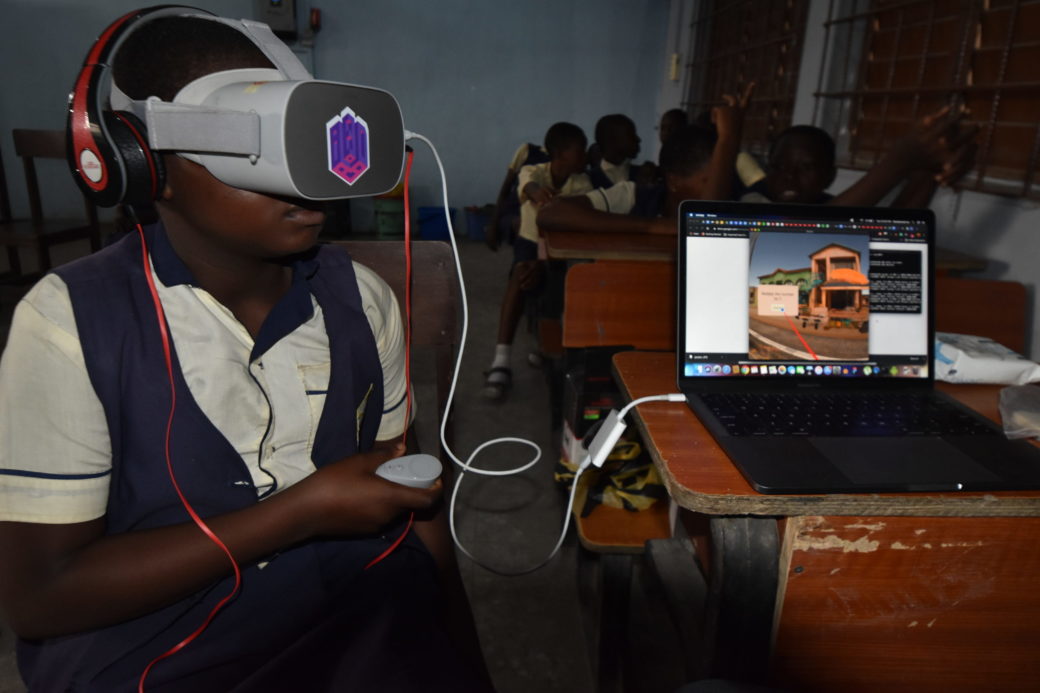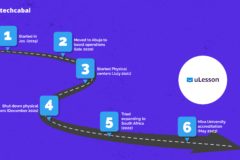Justina Dika-Oha has written off the current school term. Her three children will not return to their physical classes until September.
Schools have been shut for more than eight weeks in Lagos, Nigeria’s coronavirus epicenter. The city’s disease curve has refused to flatten, even after a five-week lockdown.
So, on Zoom every weekday at 10am, classes begin at home for Mackenzie, Dika-Oha’s three-year-old daughter.
On her Amazon Fire tablet, Mackenzie can see and hear her teacher demonstrate lessons in numeracy, reading and comprehension. Mondays and Wednesdays are for ballet practice with the virtual instructor, Aunty Sandra.
For this process to happen smoothly however, the mother has to juggle a number of roles.
She is co-teacher, helping explain parts and aspects of lessons that don’t come through clearly. She is a physical therapist and learning companion, ensuring her girl takes thirty-minute breaks away from the screen to stretch and practice lessons.
And of course she sets up the home-side of the virtual classroom and has to regularly monitor the screen in case there’s a break in connection. These duties have to be combined with a full-time role coordinating communications for a Lagos tech firm.
Galia Nnoli, an MBA student at the Lagos Business School, found it a real challenge getting her own three-year-old focused on her Google Classroom lessons.
After a first week of trying to balance her virtual schedule of lectures, cases and tests with her children’s, she drafted her ten-year-old son (whose e-classes begin later than his siblings’) to co-manage the process.
[Read: How Nigerian teachers adopt edtech to keep classes going]
Many African cities, big and small, have had to suspend outdoor schooling due to the coronavirus pandemic. As a result, this is an unprecedented time for experimenting with eLearning.
Virtual learning platforms are bridging a gap and solving a need. Keeping children away from schools for long periods can reduce motivation for learning, trigger gradual loss of acquired knowledge and adversely affect personal development.
But eLearning is only useful when technology bonds with pedagogy in the right way. While the channel of transmission is mainly from teachers to pupils or students, virtual learning for children at the early stages is virtually impossible without parental guidance.
Early-stage learners, like those between the ages of three and seven, are at a stage of cognitive development where they need help to be able to abstract knowledge, says Ibidunni Adedeji, a PhD researcher in Educational Psychology at Bournemouth University.
It will be challenging for such children to adapt to eLearning at short notice, she says.
In physical learning, teachers rely on features of the social environment to pass on knowledge. Some aspects of the physical setup can be replicated on virtual platforms, like splitting a Zoom classroom into groups.
But without physical touch, there is a limit to the knowledge that will be transmitted, Ibidunni says.
Some parents opt out of the eLearning process due to this cognition gap.
“I can’t even get him to sit down and watch a TV programme for longer than five minutes,” says a mother who requested anonymity.
She chose to not enroll her barely-two-year-old child in the school’s eLearning program because she doesn’t think it will be a valuable experience.
School for him at this age is about socialising with peers, she says. Whatever actual learning he needs can come from engaging him with educational toys and age-appropriate sing-along videos, instead of binding him to a regimented schedule online.
Adedeji, the researcher, sees nothing wrong with training a child – even a newborn – with a routine. The main consideration is to ensure that the time spent online is used in active learning and on appropriate content.
For Cynthia Okwudiafor, a mother of two boys, unreliable internet connection made it difficult for her to set her children up on eLearning in the first couple of days.
“I don’t think it’s been very productive because he’s not getting so much from the online learning,” she says of her two-year-old. “For the most part, he just logs in to see his friends.”
Learning how to subtract with borrowing, a complex concept for a four-year-old, proved very challenging on a virtual platform. She had to log him out of the class, choosing instead to print out the material and teach him herself.
The consolation for her is that the sons’ school provides an alternative to live online learning. Recorded versions of their classwork are available on Moodle, a web-based learning management system.
As much as they are content with the gap eLearning fills, these parents are not exactly ecstatic about this becoming the new normal.
Nnoli’s children have always had eLearning as part of their school system; doing homework on Purple Mash; attending two-week holiday coding classes at Techquest, an edtech non-profit in Lagos.
But she prefers in-class learning “because the interaction and networking experience is different.”
All four moms in this story say their husbands have played some part in bearing the eLearning burden. Mackenzie’s father told me he was not comfortable with the fact that eLearning exposes his children to so much screen time.
“I am concerned that they spend a lot of time on digital stuff and they will probably grow up not having the roundedness required to survive in a tactile world,” he says. However, he hasn’t objected to his 16-month daughter having a tab of her own.
Learning will always evolve to suit new lifestyles. Without much time for handling physical books, urban adults are bridging the gap with podcasts and e-books.
Over an eight-week period, the coronavirus pandemic has caused a noticeable change in our perception of the world and children’s learning is not left out.
There is no guarantee that the old ways will return. For parents with school age children, it is cause both for excitement – they will spend more time with their children – and anxiety.





















